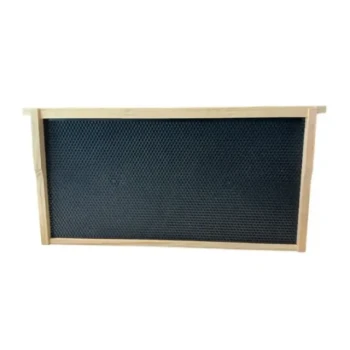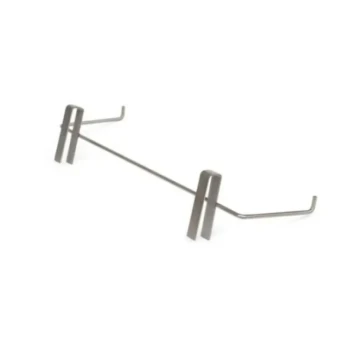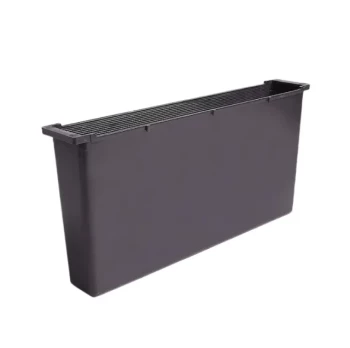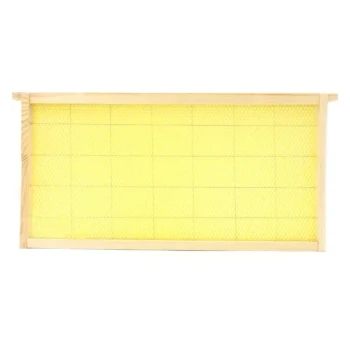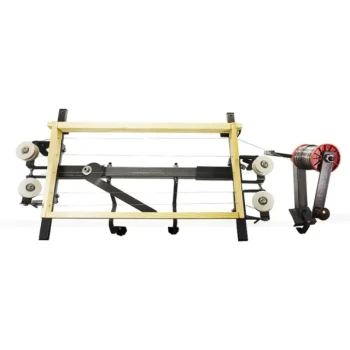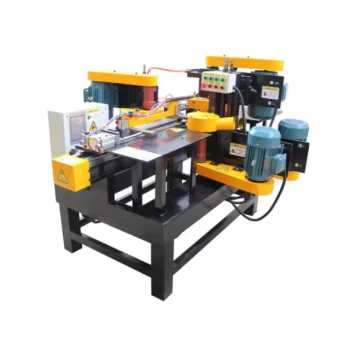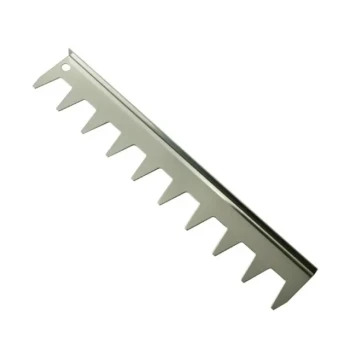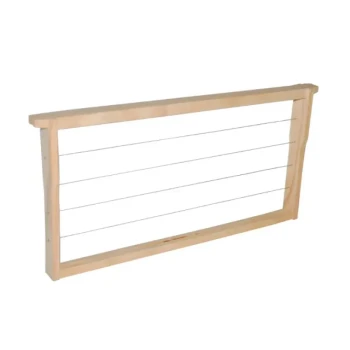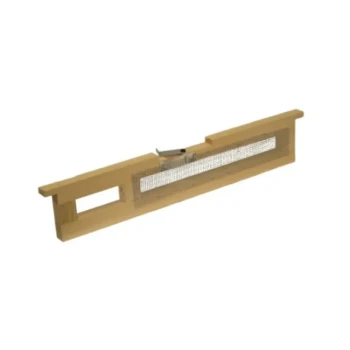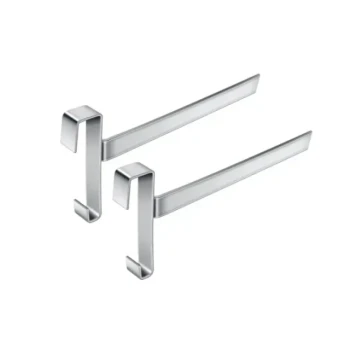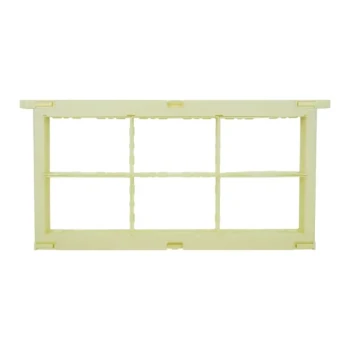In short, plastic frames offer significant advantages in durability, convenience, and pest resistance over traditional wooden frames. They are more lightweight, arrive fully assembled and ready for use, and are impervious to pests like wax moths that can damage or destroy wood and wax.
The choice between plastic and wooden beehive frames is not about finding a single "best" option, but about understanding a fundamental trade-off: plastic offers superior durability and low-maintenance efficiency, while wood provides traditional flexibility, repairability, and a more natural in-hive environment.
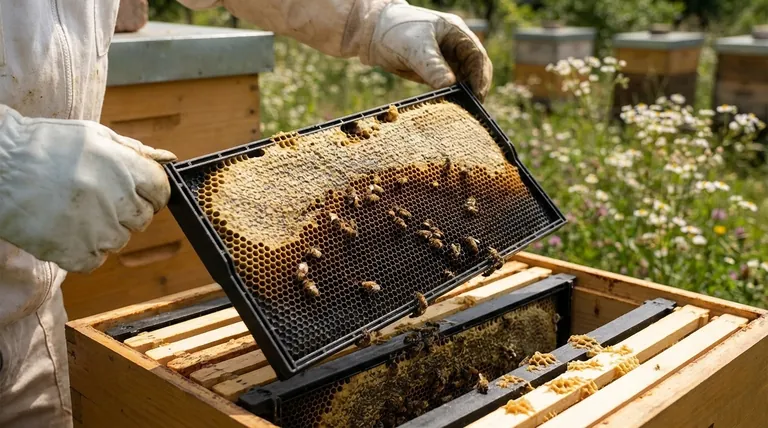
The Case for Plastic: Efficiency and Durability
The primary drivers for choosing plastic frames revolve around saving time, labor, and long-term costs. They are engineered for modern, high-efficiency beekeeping operations.
Lightweight and Easy to Handle
A full frame of honey is heavy. Plastic frames are inherently lighter than their wooden counterparts, a benefit that becomes significant when you are lifting and inspecting multiple frames or entire hive boxes.
Superior Durability and Longevity
Plastic is a more robust material that is less prone to breaking during hive inspections or the honey extraction process. These frames typically outlast wooden frames, reducing the need for frequent replacements.
Ready-to-Use Assembly
Plastic frames almost always come as a single, injection-molded piece with the foundation built-in. This completely eliminates the time-consuming process of assembling wooden frame parts and embedding a wax or plastic foundation.
Built-in Pest Resistance
This is a critical advantage. Pests like wax moths cannot burrow through or eat solid plastic. In contrast, they can easily tunnel through wooden frames and wax foundation, causing significant damage to the comb and colony health.
The Case for Wood: Tradition and Flexibility
While plastic excels in efficiency, wooden frames remain the standard for many beekeepers due to their flexibility, natural composition, and alignment with traditional practices.
Unmatched Foundation Flexibility
Wooden frames are essentially a blank slate. Beekeepers can choose to install a pure beeswax foundation, a plastic foundation, or no foundation at all (foundationless beekeeping). Plastic frames lock you into their pre-molded plastic foundation.
Repairability and Natural Material
If a part of a wooden frame breaks, it can often be repaired with a nail or wood glue. Furthermore, many beekeepers prefer using natural, sustainably sourced wood within the hive, believing it creates a more "bee-friendly" environment.
Understanding the Trade-offs
Neither frame type is perfect. Your decision requires weighing the distinct downsides of each material.
Plastic's Risk of Warping
Plastic frames can warp or bend under high heat or during the centrifugal force of honey extraction. A warped frame can be difficult for bees to work with and challenging for the beekeeper to handle.
Wood's Vulnerability to Wear
Wooden frames require more maintenance. They are susceptible to rot and pest damage over time and can break more easily than plastic, especially at the joints.
The Environmental Consideration
The choice also has an environmental dimension. Beekeepers focused on sustainability may prefer frames made from sustainably sourced wood over a petroleum-based plastic product.
Making the Right Choice for Your Goal
Select your frame material based on your primary objective as a beekeeper.
- If your primary focus is efficiency and low maintenance: Plastic is the superior choice due to its durability, pest resistance, and pre-assembled design.
- If your primary focus is control and natural beekeeping: Wood is the only option that allows for a pure beeswax foundation and offers the repairability of a natural material.
- If you are managing a large number of hives: The labor savings and longevity of plastic frames can lead to significant cost and time reductions at scale.
Ultimately, your choice of frame material reflects a core decision between the operational efficiency of modern beekeeping and the hands-on flexibility of traditional methods.
Summary Table:
| Feature | Plastic Frames | Wooden Frames |
|---|---|---|
| Durability | High resistance to breakage | Prone to wear, rot, and breakage |
| Weight | Lighter, easier to handle | Heavier |
| Assembly | Pre-assembled, ready to use | Requires assembly and foundation installation |
| Pest Resistance | Impervious to wax moths | Vulnerable to wax moth damage |
| Foundation Flexibility | Locked into pre-molded plastic foundation | Accepts wax, plastic, or no foundation |
| Repairability | Difficult to repair if warped | Easily repaired with basic tools |
Ready to streamline your beekeeping operation with durable, high-efficiency equipment?
At HONESTBEE, we supply premium beekeeping supplies and equipment through wholesale-focused operations for commercial apiaries and distributors. Our selection of robust plastic frames is designed to save you time, reduce long-term costs, and protect your investment from pests.
Contact our expert team today to discuss your wholesale needs and discover how our equipment can enhance your productivity and profitability.
Visual Guide
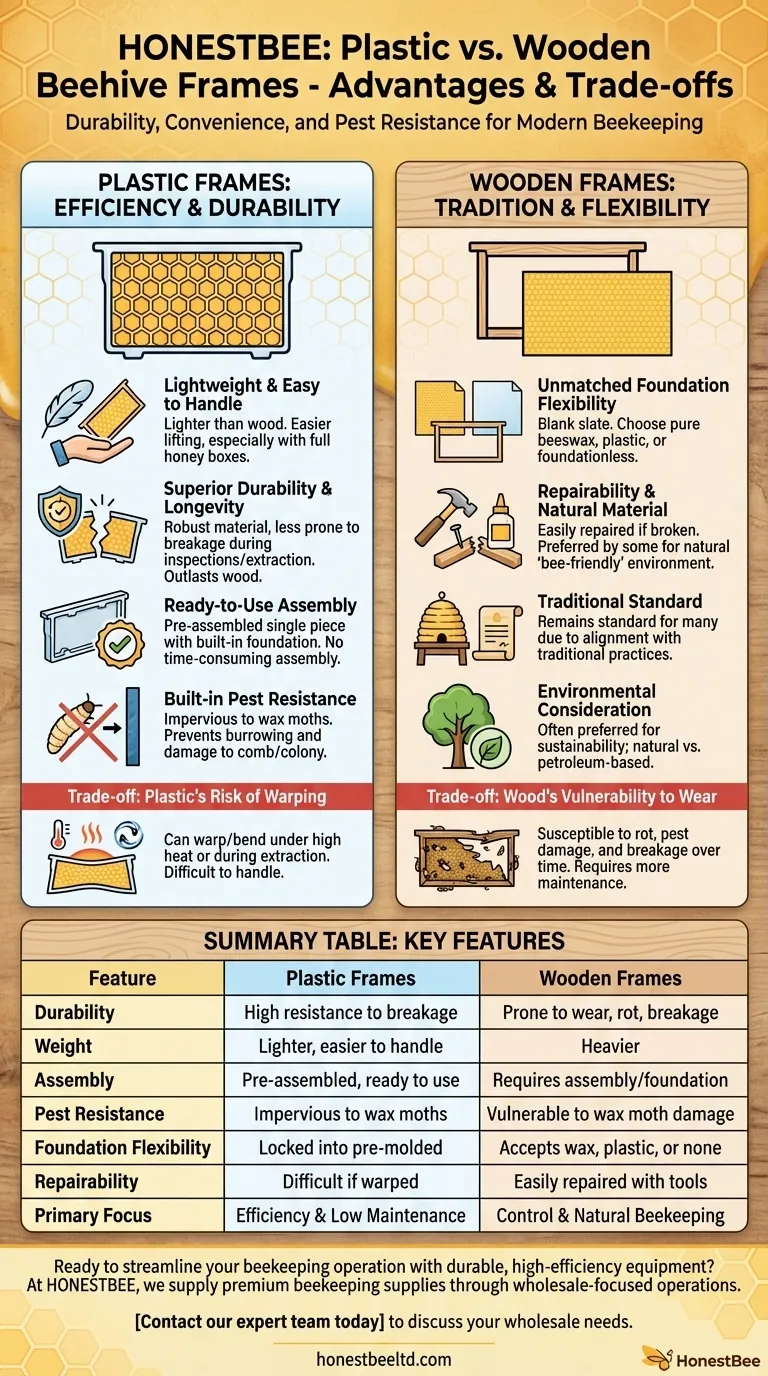
Related Products
- Plastic Bee Frame Beekeeping Hive Frames for Wholesale
- Assembled Wooden Bee Frames with Plastic Foundation for Durability and Convenience by HONESTBEE
- Yellow Plastic Bucket Pail Perch for Beekeeping
- Heavy-Duty Stainless Steel Clip-On Frame Perch
- 7 x Auto Bee Flow Hive Frames Plastic Beekeeping Hive Box Supplies
People Also Ask
- What are the differences between wooden and plastic frames in beehives? Choose the Best for Your Apiary
- What are the mechanical and acoustic characteristics of a one-piece plastic frame and foundation? Strength vs. Sound
- Why are plastic frames popular in commercial beekeeping? Boost Efficiency & Durability at Scale
- Are plastic bee hive frames good? A Guide to Modern Durability vs. Natural Appeal
- Can you boil plastic bee frames? Avoid This Costly Mistake and Protect Your Hive

